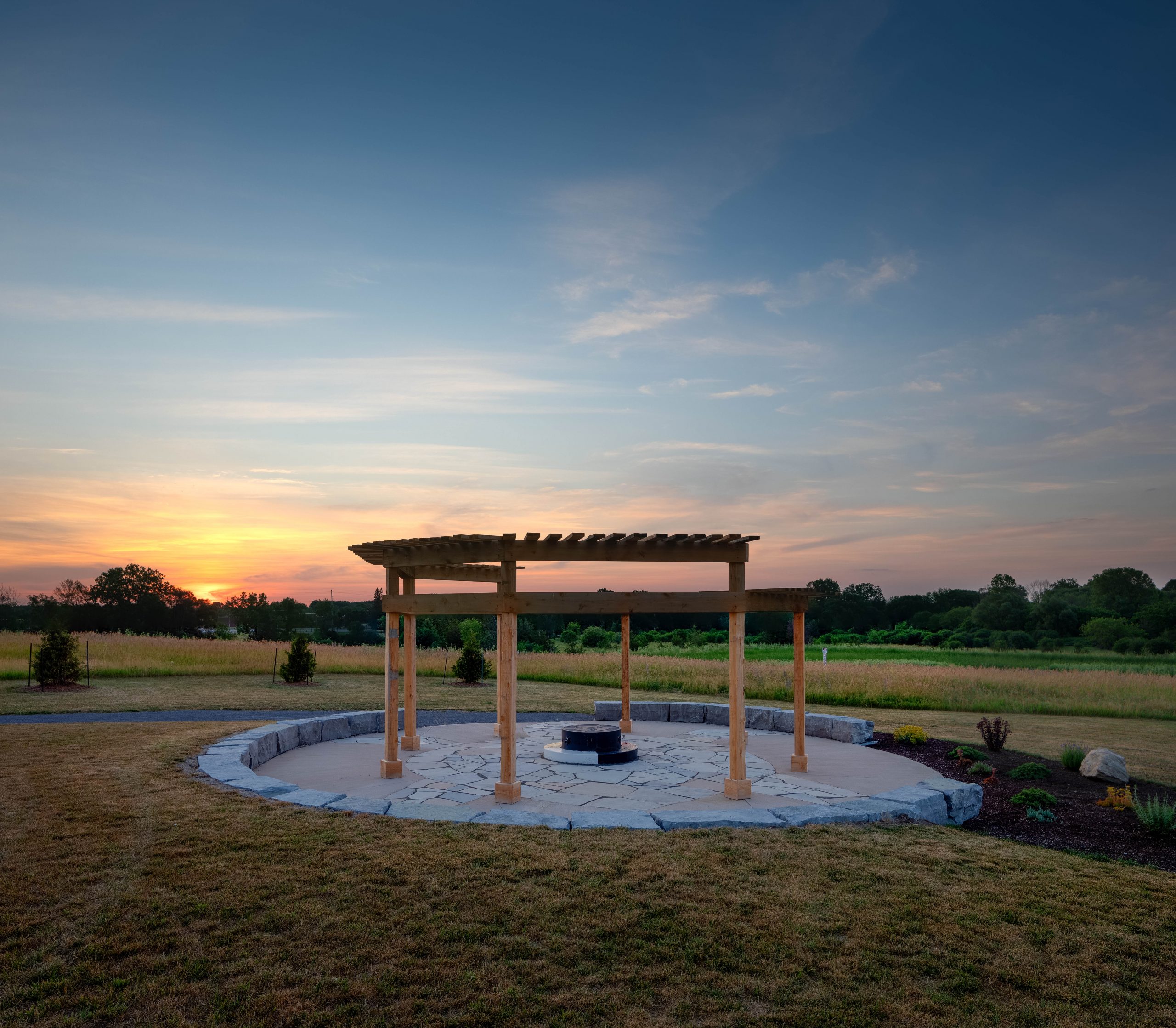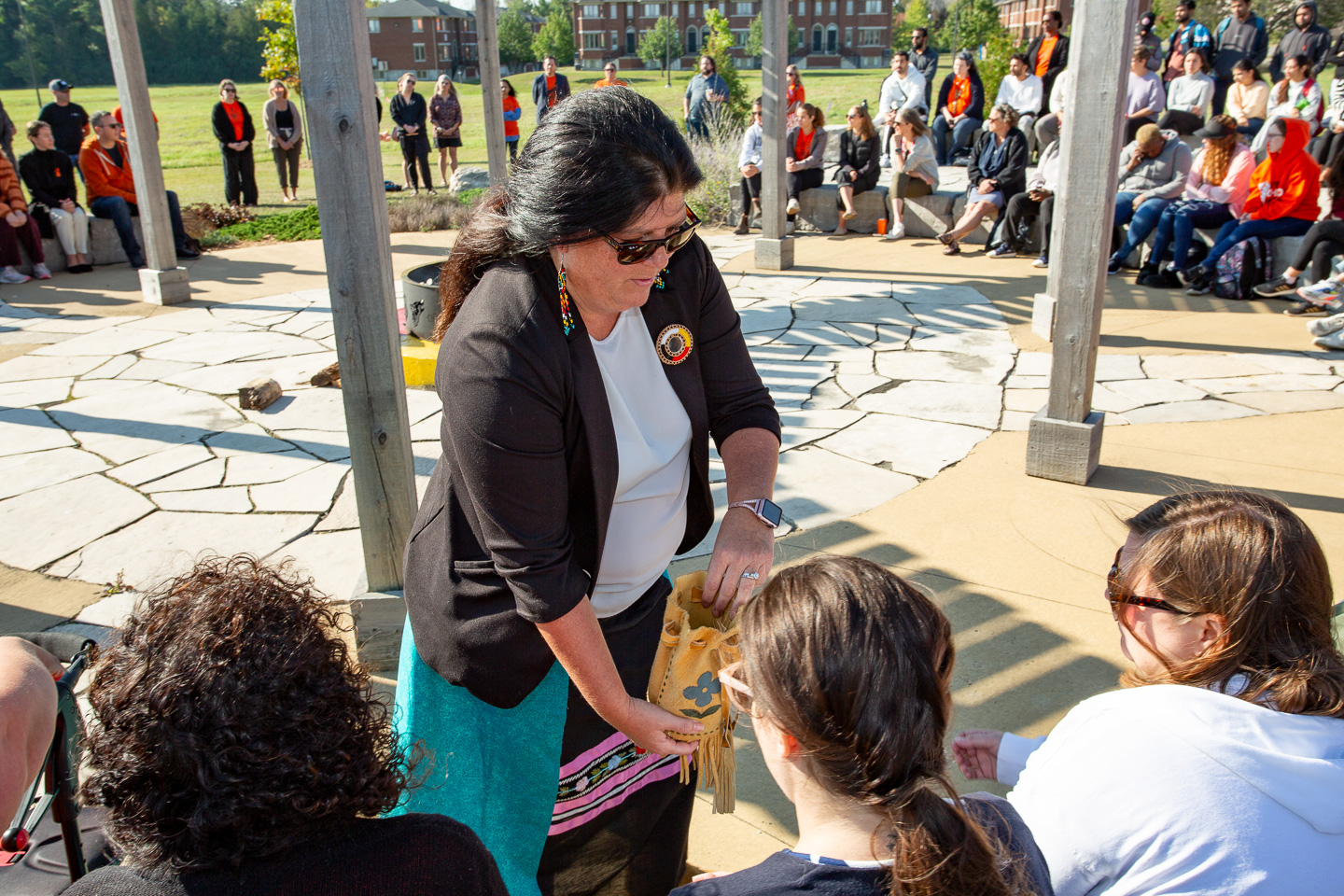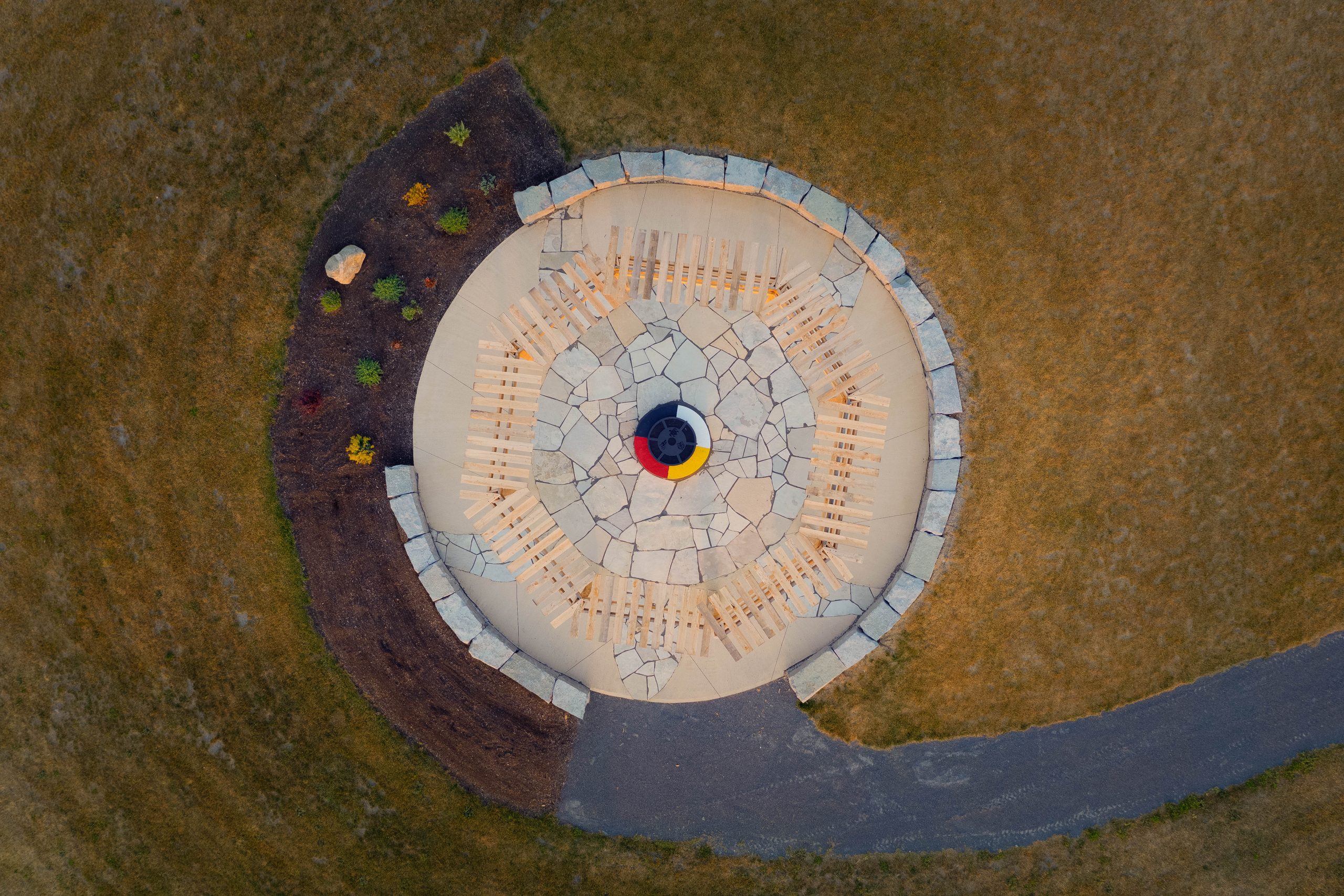We invite our community to join us in a variety of events and activities that promote celebration, understanding, and mutual respect. Together, we continue to advance the Truth and Reconciliation Commission’s Calls to Action.
Below, learn more about National Indigenous History Month, advance your understanding with a range of resources, and discover how you can join the conversation.
National Indigenous Peoples Day (June 21)
On National Indigenous Peoples Day, the college celebrates the history, heritage, resilience and diversity of First Nations, Inuit and Métis peoples across Canada with the Thanksgiving Address.
The Thanksgiving Address
The Thanksgiving Address teaches mutual respect, conservation, love, generosity, and the responsibility to understand that what is done to one part of the Web of Life, we do to ourselves.
The Six Nations of the Iroquois Confederacy open and close every meeting with a Thanksgiving Address (Ohen:ton Karihwatehkwen). As we begin our acknowledgment and celebration of the contribution Indigenous culture has had on our heritage as part of #NationalIndigenousHistoryMonth, we do so by giving a prayer of thanks for life and the world around us.
When one recites the Thanksgiving Address, the Natural World is thanked, and in thanking each life-sustaining force, one becomes spiritually tied to each of the forces of the Natural and Spiritual World.
Additional Resources:
- Skä•noñh – Great Law of Peace Center: Thanksgiving Address
- Project 562: A Real Thanksgiving Address


Thirteen Grandmother Moons
All over the world, cultures and communities have mapped the moon cycle, which happens 13 times per year, in cycles of 28 days. The Haudenosaunee follow the cycle of the Thirteen Grandmother Moons. June is the sixth moon of creation and is called the Strawberry Moon. The medicine of the strawberry is reconciliation. It was during this moon cycle that communities usually held their annual feasts, welcoming everyone home, regardless of their differences over the past year, letting go of judgment or self-righteousness.
Additional Resources:
- TRACKS Winter Storytelling Series: Thirteen Moons on Turtle’s Back
- Open Library Press Books: 13 Grandmother Moons
- Kanawayhitowin taking care of each other’s spirit: Moon Teachings
- KFL & A Children and Youth Services Planning Committee – Ohenton Karihwateh’kwen – The Words Before All Else
Seven Grandfathers
In the Anishinaabe story of the Seven Grandfathers, a young boy was given the seven sacred teachings by the Seven Grandfathers. The seven gifts: wisdom, love, respect, bravery, honesty, humility, and truth were the guiding principle given to help the people to live a good life, to teach them respect for the Creator, Mother Earth, and each other.
The Seven Grandfathers told the young boy to go out into the world and share the teachings and that “Each of these teachings must be used with the rest; you cannot have wisdom without love, respect, bravery, honesty, humility and truth. To leave one out is to embrace the opposite of what that teaching is.”
In order to achieve balance, one must apply all of the gifts, practise them, and teach them to our children.
Additional Resources:
- Tribal trade Co. – Ojibwe Story of Seven Grandfathers
- A reading of “The Story of The Seven Sacred Teaching Animals” by Kirt Bobbie and illustrated by Eric Peters.
- Nottawaseppi Huron Band of the Potawatomi – Seven Grandfather Teachings
- Open Library Press Books – Seven Grandfather Teachings
- Southern First Nations Network of Care – The Seven Teachings


The Medicine Wheel
In Indigenous culture, the circle is timeless, with no beginning and no ending, and is an integral part of their belief system.
The Medicine Wheel (sometimes referred to as the Sacred Hoop) represents the process of how life evolves and moves forward. The Medicine Wheel represents the interconnectivity of all aspects of one’s being including their connection with the natural world and is divided into four quadrants: the four stages of life, the four directions, the four elements, the four sacred medicines, the four seasons, the four states of wellbeing, the four colours of mankind, and the four stages of life.
At Loyalist, we’re here for you – personally and professionally. Small means that we can move mountains to help you succeed. We offer a range of services, opportunities and resources to support you in getting the most out of your college experience.
- The four directions: East, south, west, north
- The four elements: Fire, earth, water, air
- The four sacred medicines: Tobacco, sweetgrass, sage, cedar
- The four seasons: Spring, summer, fall, winter
- The four states of wellbeing: Mental, physical, emotional, spiritual
- The four colours of mankind: Yellow, red, black, white
- The four stages of life: childhood, adolescence, adult, elder
Additional Resources:
- A reading of “The Medicine Wheel-Stories of a Hoop Dancer” by Teddy Anderson.
- Keewaytinook internet High School – Trout Lake Medicine Wheel Teaching
- What is the Medicine Wheel? Teachings by Jeff Ward
- Kahwá:tsire Indigenous-Led Child & Family Programs – Medicine Wheel Story
- Indigenous Corporate Training Inc. – What is a Medicine Wheel?
